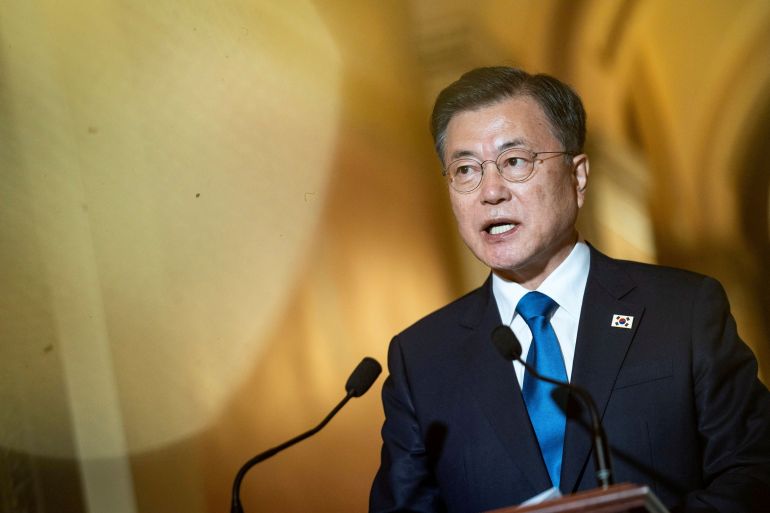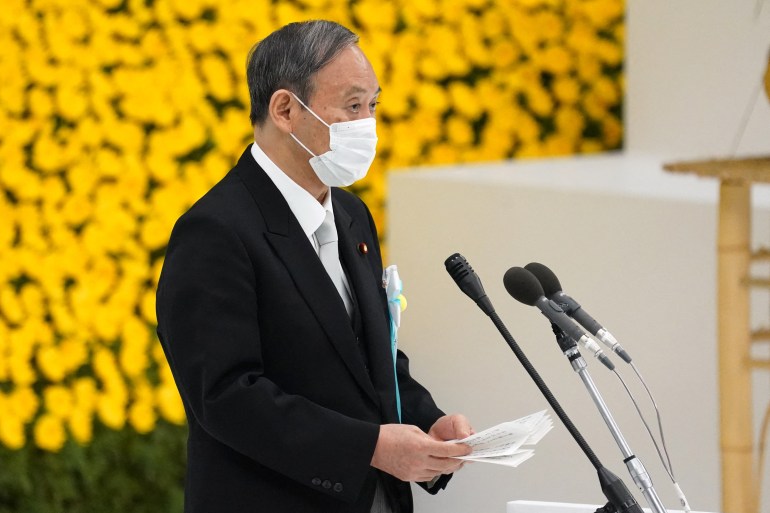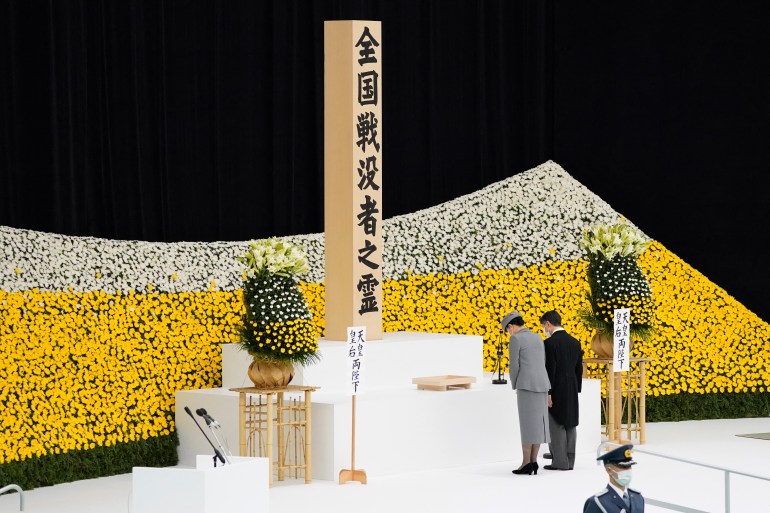S Korea’s Moon open to Japan talks despite historical feuds
Moon Jae-in says South Korea and Japan must work together to ‘surmount difficulties’ and foster cooperation.

South Korean President Moon Jae-in said on Sunday that his government remained open to dialogue with Japan to step up cooperation while seeking to resolve historical rows that had long frayed bilateral ties.
Moon, in his Liberation Day speech marking the 76th anniversary of independence from Japan’s 1910-45 colonial rule after World War II, said the two neighbours should work together to “surmount difficulties” and foster cooperation based on shared values of democracy and market economy.
Keep reading
list of 4 itemsN Korea warns of ‘serious security crisis’ over US-S Korea drills
‘Zero empathy’ Suga battles for job after Japan’s Olympic success
North Korea says South, US should ‘pay’ for military drills
“Our government has always kept the door open for dialogue to jointly respond not only to our two countries’ pending issues but also threats facing the world, including COVID-19 and the climate crisis,” Moon said.
“For historical issues that need to be rectified, we will resolve them through actions and practices that are consistent with universal values and the standards of the international community.”
Moon’s speech came weeks after he scrapped a plan to visit Tokyo for the Olympics and hold his first summit with Prime Minister Yoshihide Suga.
The South Korean leader called the meeting off after what his office called unacceptable remarks by a Seoul-based Japanese diplomat, who had said Moon was “masturbating” when describing his efforts to improve relations between the two countries.


Ties between South Korea and Japan are at their lowest point in decades in recent years, after Korean courts ordered Tokyo to compensate victims who were forced to work for Japanese companies and at its wartime military brothels. The rulings drew a rebuke from Tokyo, which says the issues were settled under a 1965 treaty that normalised diplomatic relations and other arrangements made later.
Meanwhile, in Tokyo, Japanese Prime Minister Yoshihide Suga held a memorial ceremony to mark the anniversary of the end of World War II and pledged that Japan would not wage war again. But he did not offer an apology to the Asian victims of Japanese aggression across the region in the first half of the 20th century – a precedent set by his predecessor Shinzo Abe, who was frequently accused of trying to whitewash his country’s brutal past.
“Since the end of the war, Japan has consistently walked the path of a country that values peace,” Suga said in his speech. “We must never again repeat the devastation of war. We will continue to remain committed to this conviction.”
His comments were echoed by Emperor Naruhito who expressed “deep remorse” for Japan’s wartime past, as he has previously done.
Yet visits to the controversial Yasukuni shrine by members of Suga’s cabinet as well as Abe on Sunday were likely to anger China and both Koreas.
The shrine, which honours Japan’s war dead, including 14 World War II leaders convicted as “class A” war criminals, is a flashpoint with South Korea and China.
Environmental Minister Shinjiro Koizumi and Education Minister Koichi Hagiuda paid their respects at the shrine on Sunday morning.
Suga is not expected to visit, although he did send a ritual offering through his secretary, the Sankei newspaper said.
When Abe visited Yasukuni as prime minister in 2013, it sparked outrage from Beijing and Seoul and an expression of “disappointment” from the United States. He did not go again as prime minister, sending ritual offerings instead.